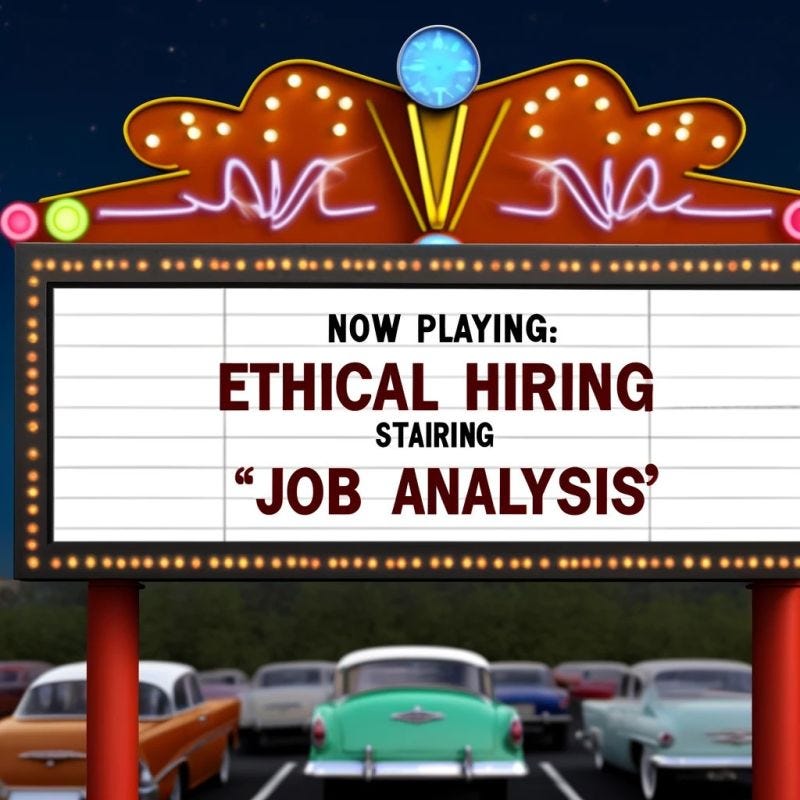Why We Need Job Analysis More Than Ever in the Age of AI!
Job analysis is the cornerstone of ethical hiring and AI does not change this one bit.
Uncertainties in the global economy and rapid evolution of AI have led organizations to pull back on anything deemed non-essential. Platformization/productization have created a misconception that there's no need for services to support implementing hiring tools such as interviews and assessments.
💣 Job analysis risks becoming one such casualty.
I'm here to tell you that this idea is dangerous and incorrect. Job analysis presents an excellent example of why we still need humans landing the plane with AI as the co-pilot.
As AI becomes increasingly integrated into talent acquisition and pre-hire assessments, proper job analysis (JA) is more important than ever. Job-relatedness is a foundational tenet of ethical hiring, valued outcomes, and skills-based hiring. Without JA to anchor them down predictive hiring tools will be essentially worthless.
📣 The Perils of Substituting AI for Hands-On Job Analysis
AI systems often use NLP and other methods to extract job requirements on which hiring is based. They often use job descriptions, an inherently flawed source of information. This creates a garbage in garbage out scenario that increases risk of bias and nukes your quality of hire. JA creates the template for assessment design leaving this entirely to software or machines is bad juju.
🎓 There Is No Substitute for Expert Experience
A pillar of JA is direct contact with and learning from SMEs. While foundational sources like O*Net are helpful, the real magic is found via direct touch points with those who do the job. EEOC compliance also requires documented job requirements from a representative sample to create test plans which serve as the recipe for assessment design and configuration..
👨🍳 The Ingredients and Outputs of a Good Job Analysis
A proper JA involves:
-Studying existing materials relevant to the job
-Interviewing stakeholders for context
-Conducting interviews/focus groups with incumbents and managers
-Developing a performance profile of KSAOs
-Surveying a representative sample
-Expert review and documentation of a final model
👊 AI is a supporting tool for job analysts
AI can support JA, generating baseline info and suggesting task statements, scenarios, rating scales, and interview questions. JA helps group jobs into families, a task which is very challenging at scale. Outputs from JA can THEN inform AI-based assessment development.
🌏 Broader Use Cases for Good Job Analysis
Skills-based hiring, job design, future job changes, talent management, training & development, and compensation are all use cases for JA.
AI must be a partner, not a proxy, in job analysis. Ensuring job-relatedness is crucial for ethical, compliant hiring. This is an opportunity for AI and psychology to come together, creating a whole that is > the sum of its parts.




